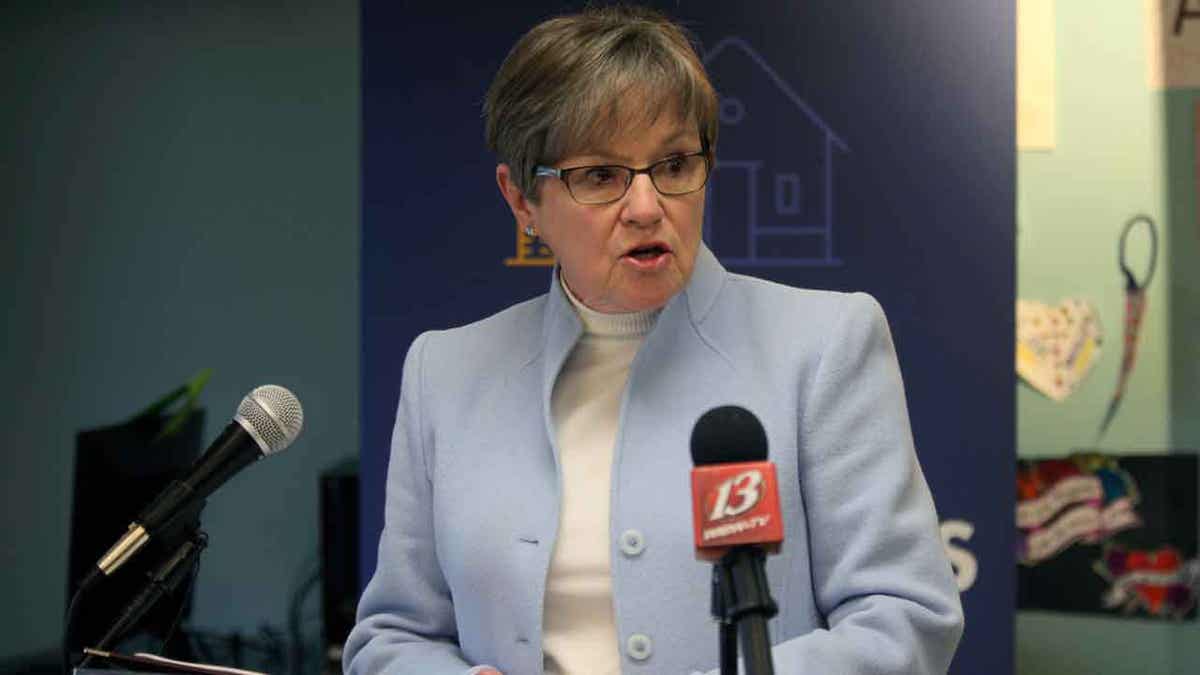Fox News Flash top headlines for January 24
Fox News Flash top headlines are here. Check out what's clicking on Foxnews.com.
Democratic Gov. Laura Kelly is preparing to outline what she is likely to call a middle-of-the-road agenda for a Republican-controlled Kansas Legislature that already expects to ditch much of what she'll propose in favor of more conservative ideas on taxes and education.
Kelly was scheduled to give the annual State of the State address Tuesday evening to a joint session of the state House and Senate. She previously outlined several proposals for cutting taxes that include eliminating the state's 4% sales tax on groceries by April 1.
Other proposals, including expansion of the state's Medicaid coverage for the needy and elderly, previously have been blocked by GOP lawmakers.
Top Republican legislators have outlined their own agenda with ideas in vogue in other GOP-led states. They include allowing parents to claim tax dollars previously earmarked for public schools to cover private or home schooling costs and restricting how public schools discuss gender and sexuality, like what critics call Florida's "Don't Say Gay" law. Kelly and GOP leaders also differ strongly on tax cuts.
I'M LAURA KELLY: THIS IS WHY I WANT KANSAS' VOTE IN THE MIDTERM ELECTION
Kelly had been scheduled to give the State of the State on Jan. 11 but tested positive for COVID-19 the day before, only to learn later it was a false positive. Her office went ahead with releasing her proposed $24.1 billion state budget for the 2024 fiscal year beginning July 1.
Kelly narrowly won reelection in November and opened her second term earlier this month by saying in her inaugural address that it's best to govern Kansas from "where the left and right come together." She has repeatedly touched on that theme in major speeches.

Kansas Gov. Laura Kelly speaks during a news conference about her proposals for cutting taxes, on Jan. 23, 2023, in Topeka, Kansas. The Democratic governor is preparing to give the annual State of the State address tonight. (AP Photo/John Hanna)
But the Democratic governor also has previously vetoed GOP proposals on education and banning transgender athletes from girls' and women's K-12, club and college sports. Earlier this month, she dismissed the idea of restricting what schools teach about gender and sexuality.
Asked Monday about the possibility she'll embrace an aggressive conservative school choice or "voucher" program, she said, "That's not going to happen."
The governor also was cold Monday to a tax-cutting proposal from Republicans and the powerful Kansas Chamber of Commerce. It would switch Kansas to a "flat" income tax with a single rate each for individuals and corporations, rather than three for individuals and two for corporations.
KANSAS GUBERNATORIAL BATTE: DEMOCRATIC GOV. KELLY AND GOP ATTY. GEN. SCHMIDT FACE-OFF
Kelly had a news conference at a central Topeka center for survivors of domestic abuse, sexual abuse and human trafficking to promote her own tax-cutting plans.
"It's got to be responsible," Kelly said of a tax plan. When a reporter suggested Monday that Kelly sounded open to a flat income tax, she shot back, "I didn’t say that."
Kelly and lawmakers are eager to cut taxes because the Legislature opened its annual 90-day session earlier this month with projections showing Kansas on track to end June 2024 with $4.2 billion in surplus cash.
That's even after the state last year enacted a law phasing out the sales tax on groceries over three years. It dropped from 6.5% to 4% on Jan. 1 and is set to go to 2% in 2024 and zero in 2025.
Top Republicans have resisted Kelly's plan to eliminate the entire tax this spring, seeing their "flat" income tax as a higher priority.
CLICK HERE TO GET THE FOX NEWS APP
"What she’s proposed is probably not what’s going to happen," said House Speaker Dan Hawkins, a Wichita Republican.
Each year Kelly has been in office, she has called on legislators to expand Medicaid as encouraged by the 2010 federal Affordable Care Act championed by former President Barack Obama. Republicans who strongly oppose the move have held enough key leadership jobs to block expansion, even as voters in other Republican-leaning states have embraced it, including Arkansas, Iowa, Missouri, Nebraska and Oklahoma.
Kelly also has pushed legislators to legalize marijuana for medical uses. While the House approved a plan in 2021, it never had even a committee vote in the Senate.





